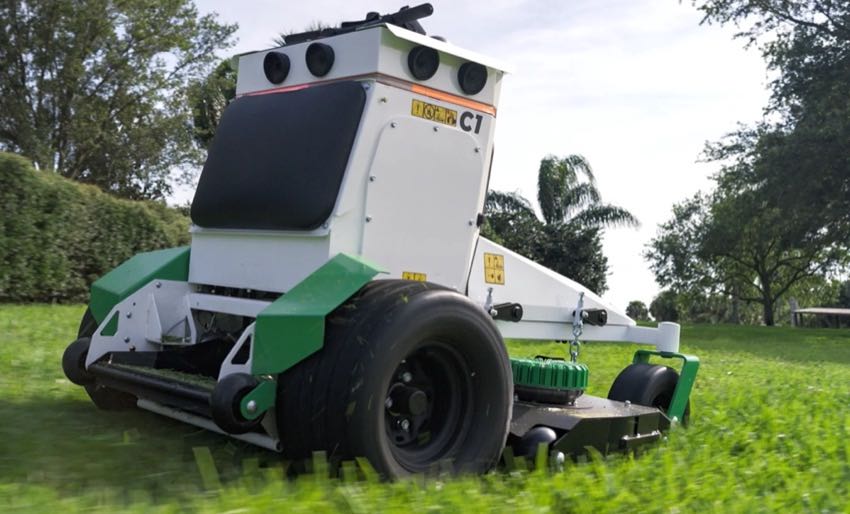We’ve been involved in several conversations about using autonomous commercial mowers in landscaping, but not the zero-turn variety. When wresting with the challenges of staffing landscape crews and running a business, the idea of using autonomous commercial zero-turn mowers, especially as a service, raised some eyebrows around here. But how might it work?
Using Autonomous Mowers in Landscaping
The issue of using autonomous mowers in a commercial environment presents some interesting potential—as well as some difficulties. Even as far back as 2016 when attending the Husqvarna Silent City event in Sweden, the industry was clamoring for autonomous mowing solutions. At the time, the talk centered around the use of commercial automowers for remote locations.
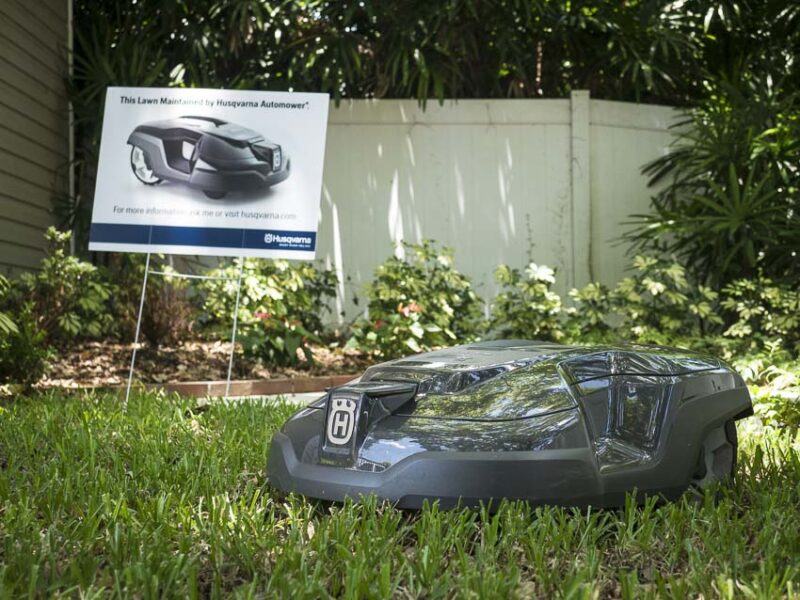
Then, the talk drifted to the professional use of autonomous mowers in residential landscape applications. Professional landscapers running crews wanted to find a way to get these mowers operating so they could re-task crews to other jobs like trimming, edging, and blowing.
At the time, the lack of real-time GPS and advanced LIDAR functionality made this impractical. The automower market simply wasn’t ready for autonomous use for residential landscaping applications.
But what about now? With the increased use (and reduced cost) of LIDAR and camera/sensor technologies, can professional landscapers begin using autonomous commercial zero-turn mowers? We’re seeing signs that the answer might be drifting towards “Yes”.
Autonomous Commercial Zero-Turn Mowers as a Service
Something that never occurred to me (or these landscapers back in 2016, was the possibility of using autonomous mowers as a service. Instead of buying the mowers, a manufacturer/service provider could make their mowers available for lease. This solves a number of problems.
Offloading Mower Maintenance
Using autonomous commercial zero-turn mowers as a service means shifting the maintenance burden to the service provider. As a commercial landscaper, you would still supply and maintain your other products. However, the maintenance of your primary large-area commercial zero-turn mowers would fall to a service provider rather than your bottom line.
That means you set up your business to cut commercial properties and not maintain your commercial fleet of zero-turn mowers.
Using Battery-Powered Commercial ZT Solutions
Clearly, the movement in the industry favors the use of battery-powered mowers and tools. Pro landscapers already have their eyes on the best battery-powered lawnmowers and the best string trimmers. Your service provider would likely follow suit, using battery-powered autonomous commercial zero-turn mowers instead of gas. That would eliminate most of the hassle of compliance for municipalities and other areas that require the use of quieter, more environmentally-friendly mowing products.
As more and more residential landscaping professionals convert from gas to battery, those maintaining commercial properties must also take note.
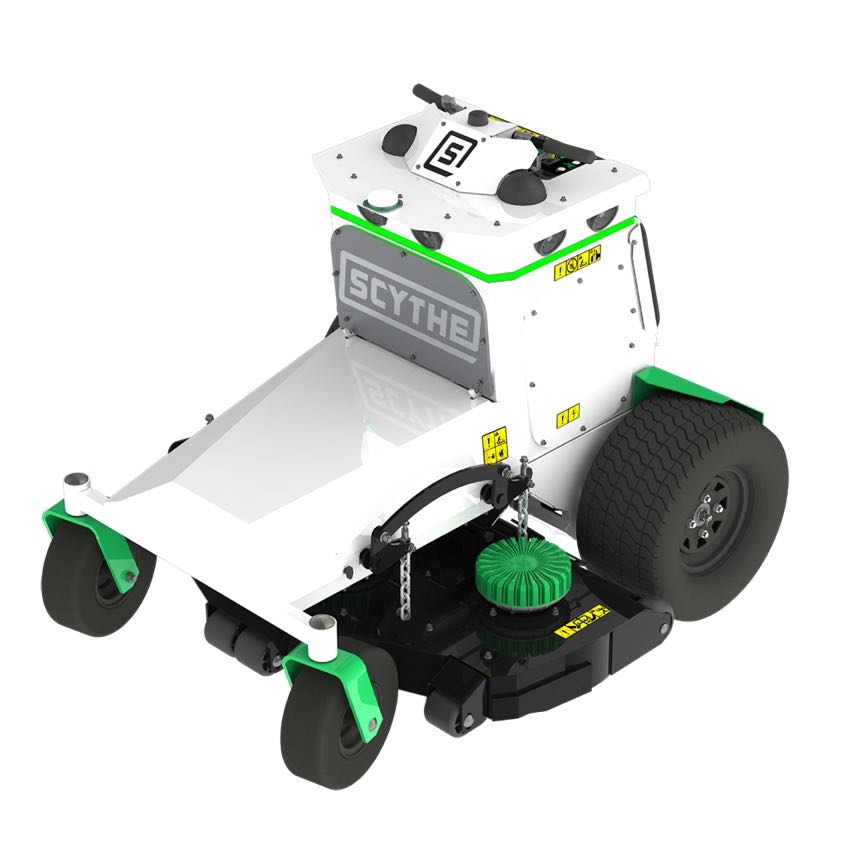
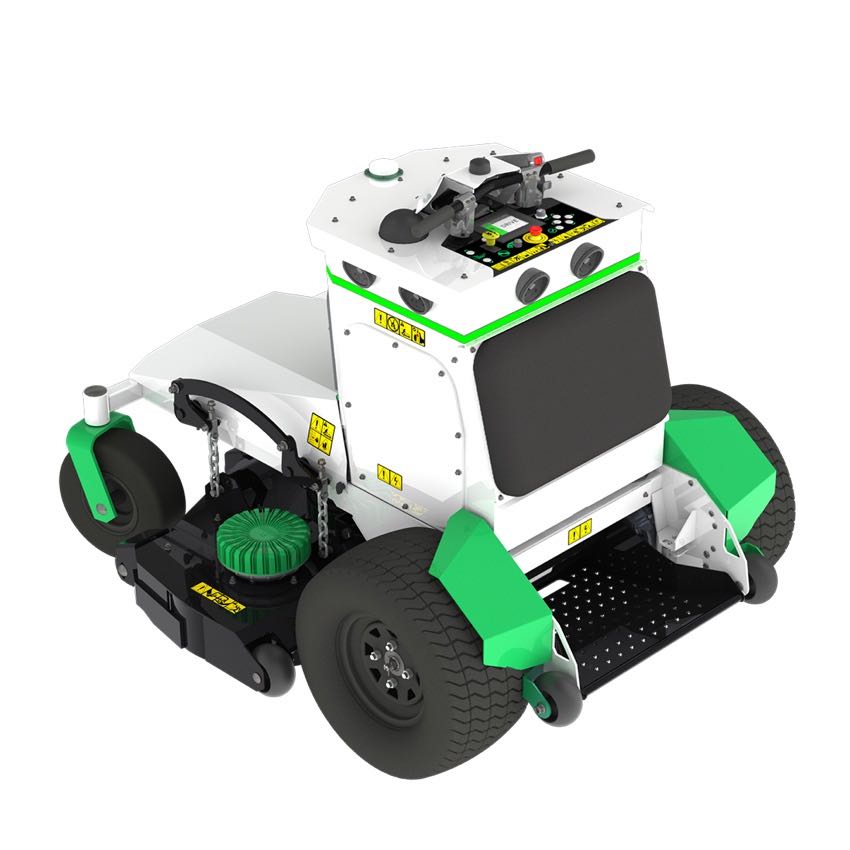
Reducing Equipment Outlay Costs
One huge advantage of leasing autonomous commercial mowers would be the elimination of purchasing new products. Instead, you’d pay set fees that you can build into your business model. All upkeep and mower replacement costs would fall to the service provider. Much like renting a passenger vehicle, almost no one worries about whether they get to drive a car with 100 miles or 5,000 miles on it. It still runs well, looks new, and gets the job done!
Do You Really Want an Autonomous Mower Loose on the Property?
Possibly the most difficult aspect of using autonomous commercial mowers—particularly the zero-turn variety—is dealing with the safety factor. Will an autonomous zero-turn mower work safely on a large swatch of commercial property? Do you need to block off the area before it runs? What are the integrated safety measures and protocols available on the mower?
Who covers the additional liability insurance (if applicable)?
A service provider needs to answer these questions and more if they expect to truly convince commercial landscapers to give them their business. Considering that a viable commercial landscaper could have dozens and dozens of mowers running simultaneously, this presents a really challenging issue. However, we think these issues can be worked through. Eventually, as technologies mature, other industries (like insurance companies) come around. Just look at Tesla car insurance as an example.
It Already Exists – Introducing Scythe Robotics
Lest you think this article was yet another “well we hope it happens, but who knows” adventure, think again. Scythe Robotics already has a 52-inch autonomous zero-turn mower under development and they are beginning the preorder phase. Check out their mission statement:
To provide the most advanced and sustainable autonomous technology for maintaining off-road environments safely, effectively, and responsibly.
Those wanting to begin using autonomous commercial mowers in the field could start on this platform. The Scythe M.52 mower uses a tri-blade system with a rear discharge that supports cutting heights between 1.5 and 6-inches. It connects via twin LTE feeds and WiFi and has a top cutting speed of 10 MPH. This 1,100-pound mower cuts with the equivalent power of a 20 HP drive system and 15 HP deck. With a pair of 20×12″ rear wheels and flat-free casters, it looks like a great solution for wide-open spaces.
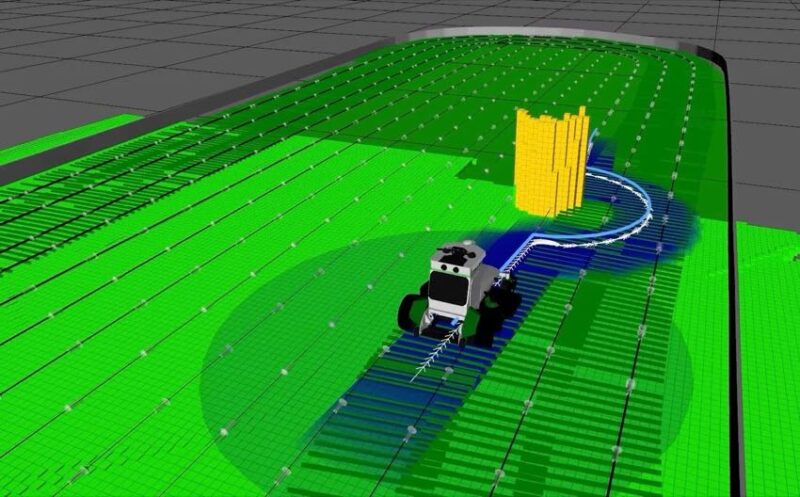
The Scythe M.52 autonomous commercial zero-turn mowers use the following to map the cut area and stay on track:
- 8 HDR cameras
- 2X IMU (inertial measurement system—gyroscope and accelerometer)
- Global navigation satellite system (GNSS)
- 12X ultrasonic sensors (for sensing proximity)
Combined, the system makes a constantly-updated 360º coverage map around the mower to keep it on track.
How Much Will a Fleet of Autonomous Mowers Cost?
Using autonomous commercial mowers like the Scythe won’t be cheap. Scythe Robotics puts the reserve price at $1,000 per 10 mowers—and the minimum reserve is 10 units. They want larger companies on board, and this reserve price doesn’t truly answer the question of cost. For that, the company wants more information to determine an infrastructure plan to fit your specific needs.
Scythe claims its pricing model will save commercial mowing companies 40% or more compared to mowing with manually-operated, gas-powered equipment. For now, they’re still establishing the exact pricing structure, but they plan to price on the number of acres you mow each week. Beyond that, they take care of maintenance. You just need to keep the blades sharp and cover new tires when needed.
When Will Autonomous Lawn Mowers Hit the Mainstream?
Autonomous mowers are already very popular overseas in residential applications. The commercial market remains the next big hurdle—as well as adoption in the United States, which tends to move more slowly with respect to new technology.
If Scythe represents the start of the autonomous mower revolution, they say their 2022 production is already fully-booked. Fulfillment of reservations placed now should begin in late 2023 and 2024 as the M.52 autonomous commercial zero-turn mowers become more widely available.
Assuming they nail their targets and genuinely save commercial landscaping companies as much as 40% off the price of using gas mowers and crews, this could catch on very quickly indeed.

